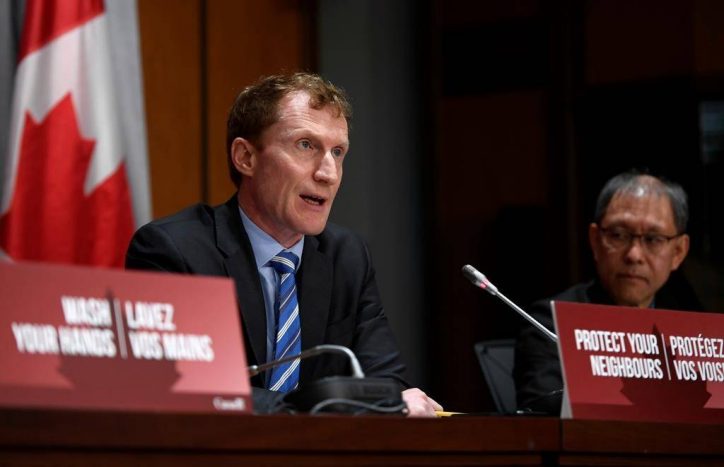To date, there have been a total of 15 confirmed cases of COVID-19 in Indigenous communities, according to Marc Miller.

The federal minister of Indigenous services spoke at a press conference on Thursday. He did not specify where in Canada the communities are located.
“Communities are taking exceptional measures to prevent the spread of virus, including restricting travel in and out of communities, self-isolation and quarantine of returning travellers. And we will continue to adapt plans and provide surge capacity as the situation evolves,” Miller said.
“I will reiterate that handwashing and physical distancing remains one of the most effective ways to prevent and slow the onset of COVID-19.”
Miller said there is a historical mistrust of government in a number of First Nation communities and this a gap is being filled by Indigenous leadership exceptionally well.
“It does create a barrier to getting that important message out. And as always, Indigenous leadership is stepping up,” Miller said.
During the novel coronavirus pandemic, the minister said other challenges may arise such as spring flooding.

Get weekly health news
“We’ve seen a lot of measures taken by communities to protect their populations, and I want to recognize their important work. The work of health leadership and political leadership and the strength they have shown,” Miller said.
“But let me be clear. This is just the beginning. We know more support will be needed and we will be there to make sure no Indigenous community is left behind. Canada is here to support you during this uncertain time.”
In Saskatchewan, Muskoday First Nation announced on Thursday it’s enacted a law restricting access to the reserve in order to protect its members from the virus.
This law carries a fine up to $1,000 and possible imprisonment, according to a press release.
Muskoday said checkpoints and signage will be erected at entry points to the First Nation to prohibit individuals who are not members, residents, essential employees, or individuals delivering emergency services as defined by its council.
“We had a good conversation with respect to the efforts and initiatives that not only First Nations communities are taking, but also some of our northern communities are taking to protect themselves. Understanding that they are much more rural and remote than many of our communities south of the tree line.”
Questions about COVID-19? Here are some things you need to know:
Health officials caution against all international travel. Returning travellers are legally obligated to self-isolate for 14 days, beginning March 26, in case they develop symptoms and to prevent spreading the virus to others. Some provinces and territories have also implemented additional recommendations or enforcement measures to ensure those returning to the area self-isolate.
Symptoms can include fever, cough and difficulty breathing — very similar to a cold or flu. Some people can develop a more severe illness. People most at risk of this include older adults and people with severe chronic medical conditions like heart, lung or kidney disease. If you develop symptoms, contact public health authorities.
To prevent the virus from spreading, experts recommend frequent handwashing and coughing into your sleeve. They also recommend minimizing contact with others, staying home as much as possible and maintaining a distance of two metres from other people if you go out.
For full COVID-19 coverage from Global News, click here.







Comments